Written by: Hilary Jacobs Hendel, LCSW, author of It’s Not Always Depression
Are you struggling with mood swings? Thinking about how to manage your emotions? Then there is much to learn about emotions that increase emotional well-being and help you improve your emotional health.
6 Concrete Ways To Improve Your Emotional Health
1. The basics: Eat healthy food, get enough sleep, move your body, and use vices in moderation.
Like a car needs working parts and fuel to run smoothly, humans need healthy food, exercise, rest, and not poison our minds and body. The key to making positive change is to set attainable goals.
If you recognize that change has been hard in the past, you might be pushing yourself too much. Instead, figure out and commit to one small change that you know you will and can do, like adding a salad or green vegetable to your lunch and dinner for a week and seeing how you take to it.
After dinner, try taking a family walk around the block for exercise and bonding—this accomplishes two positive changes at the same time: exercise and bonding with family.
When you are tired, rest, even for five minutes. One family member of mine said that to sleep better, their new year’s resolution was to read before bed instead of looking at their cell phone. I’m going to try that as well.
Think about what would make you feel proud of yourself and try making a small change in a positive direction. Experiment to find what works for you. Be nice to yourself when something doesn’t work and then try another idea.
Use guilty pleasures in moderation, like food, drugs, alcohol, video games, and smartphones. Be aware that underlying emotions may be causing discomfort that you try to soothe with under-eating and over-eating food and vices.
Instead of self-medicating in ways that hurt you or make you feel bad about yourself in the long run, strive to calm your mind and body in healthy ways.
Below, I share what works for me and many others. Suffice it to say that every new habit we cultivate starts with willingness, courage, and education.
Related: 10 Hidden Traits Of Depression You Might Not Know About
2. Learn about emotions!
Emotion education has the power to transform anxiety and depression, bolster your confidence, and help you spend more time in calmer and authentic states of being.
Do you know the difference between your thoughts and your emotions? Did you know we cannot control whether we have emotions, just what we do with them once they are triggered? Did you know that if we bury core emotions, they make us anxious? Did you know emotions are there to make us move?
Did you know that depression is often caused by anger towards another person that gets turned against one’s self? Did you know that shame is an emotion from which we all suffer?
Did you know there is a healthy shame that civilizes us and toxic shame that impairs us? Did you know the brain can change and heal from the day we are born until the day we die?
Society doesn’t provide formal education on emotions and how they affect both our mind and body. Nor do we learn in high school the many concrete skills available that help builds emotional health and resilience. Society leaves us to flounder on our own.
To make matters worse, we are raised with myths and misinformation about emotions. Therefore, we must take it upon ourselves to get an emotional education.
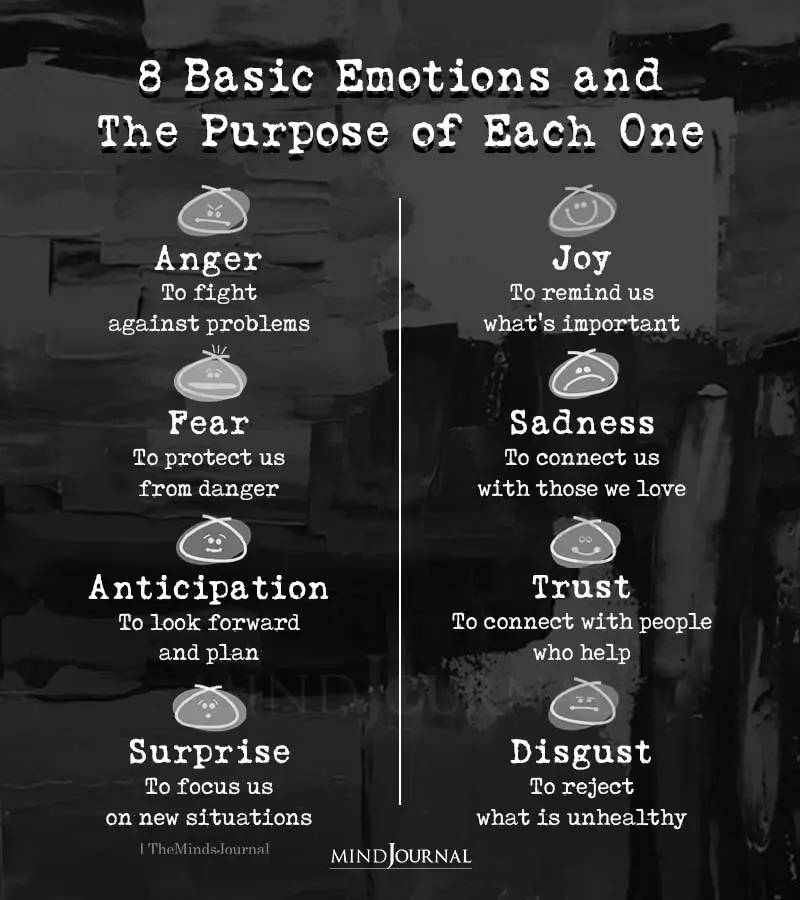
Men, I am talking to you too. I know emotions scare you. Society has hurt you by teaching you that emotions are unmanly and something to be pushed away. Even learning the science of emotions brings forth anxiety and avoidance.
The irony is that people avoid learning about emotions because of the myths and stigma in our society. Yet it’s only with a basic education that we can correct falsehoods and ignorance. It’s with an education that we learn skills to prevent, ease, and even heal anxiety and depression.
It’s with emotional education that we grow to embrace our authentic self, flaws and all. Our physical health improves too when we learn to validate emotions, as research shows many physical conditions are caused by buried emotions.
Here’s what you can do to get some information: During your commute to work, listen to a podcast or audiobooks on emotional health. You don’t have to do anything differently, just learn. You’ll be amazed much better you’ll feel about yourself just by understanding emotions.
The Change Triangle is how I first learned about my emotions and now it’s my favorite way to teach others about emotions.
Related: 15 Simple Ways You Can Boost Your Emotional Health
3. Practice grounding and breathing even if you are skeptical or think it’s dumb.
It wasn’t until I became a dentist that I started to floss my teeth. In dental school, I learned why flossing was important. And, I was annoyed that my dentist never thought to explain those simple things I learned in dental school that got me to floss.
Similarly, when I was young and people told me to breathe to calm down, I wanted to punch them. Literally, it annoyed me so much because I didn’t understand what grounding and breathing would do. When I tried it, it felt stupid and too simple to make a difference.
Just like I had to go to dental school to learn why I should floss, I had to train to become a trauma psychotherapist to understand why grounding and breathing were fundamental to emotional health.
Filling up with air as we do when we deep belly breathe (technically called diaphragmatic breathing) puts pressure on the Vagus nerve. The Vagus nerve connects directly to the heart and many other organs.
When we massage that nerve with deep belly breathing, we actively slow our heart and switch into a more relaxed and open state of mind.
At the age of 56, I now know breathing and grounding to be key to emotional health and wellbeing. In fact, I start most of my sessions with it. When it comes to embracing breathing and grounding, better late than never! I am living proof of that.
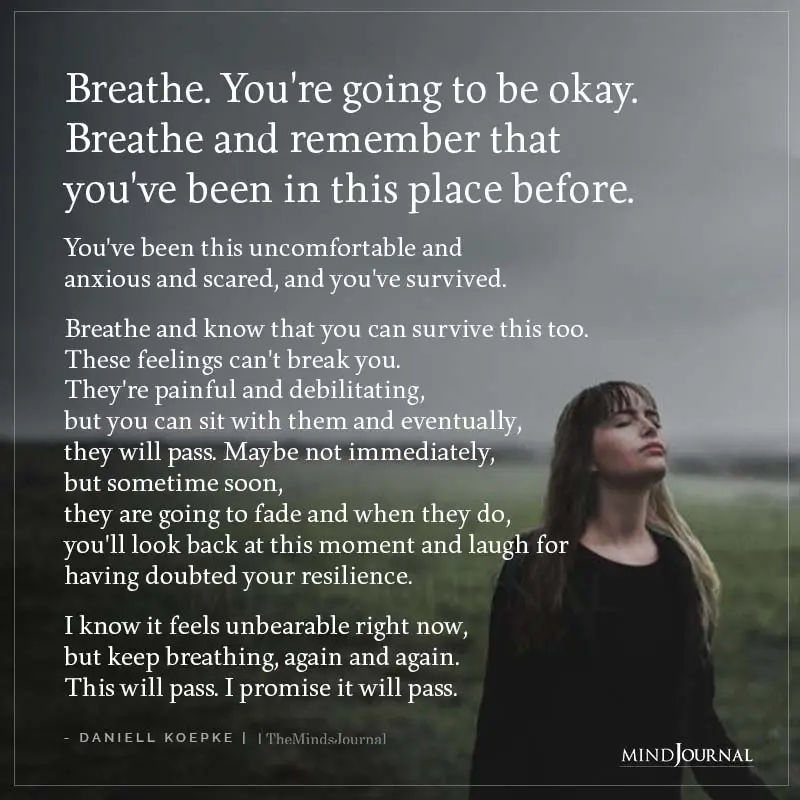
4. Practice self-awareness with a stance of curiosity, unconditional compassion, and kindness towards yourself.
Getting to know yourself is endlessly fascinating unless you are blocked by fear. If you are scared to dip into your internal world, then that is where you begin—with fear.
The fear has meaning and wisdom to offer. The task at hand is to listen to your fear, honor it, and validate it. But, please don’t judge your fear, or any of your emotions and thoughts, for that matter.
We must judge our behaviors and actions for whether they are constructive or destructive—it’s important not to take actions that hurt yourself or others. But judging our emotions and thoughts is not helpful. Judging shuts people down.
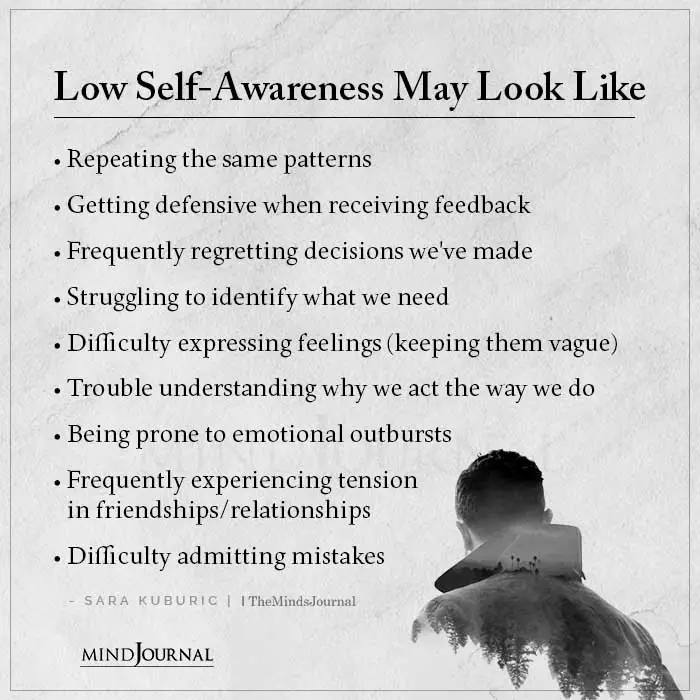
Approach your internal world in ways that open you up to new possibilities. That’s what makes it possible to change and transform for the better. We cannot change what is not in awareness and we cannot safely become aware of our emotions, thoughts, fantasies, and impulses if we judge them harshly.
Curiosity and compassion are necessities when looking inward. When we cannot approach ourselves in accepting ways, we can work to grow that capacity. It takes practice.
The kinder and more patient you are with yourself, the better you will feel. And this self-compassion will compel you to expect better treatment from others. Additionally, you’ll have more compassion to extend to loved ones and friends.
Related: The Johari Window: How To Build Self-Awareness and Achieve Success
5. Work to simply name the emotions you are experiencing in the moment.
In an fMRI study aptly titled “Putting Feelings into Words,” participants viewed pictures of people showing emotions as evidenced by their overt emotional facial expressions. When the participants looked at these faces, their emotional brain, called the amygdala, reacted which could be seen by fMRI.
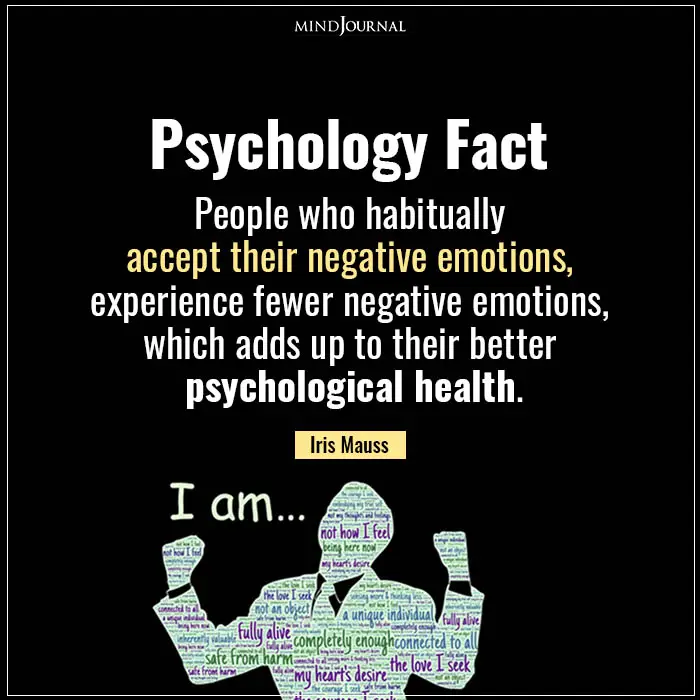
When people were asked to name the emotion they saw, another part of the brain responsible for calming emotions, called the ventrolateral prefrontal cortex, activated and reduced the emotional activity of the amygdala.
In other words, consciously recognizing the emotions and putting language on emotions quieted the brain’s emotional reactivity. In 2020, work to name your emotions and you will improve!
6. Find and create practices to help yourself feel as good as possible.
If your goal this year is to feel calmer, more connected, less distressed, and headed to a better place by 2021, try out a few of the practices below (or others you find in your research). Practice any one that you can commit to trying for a month. Then evaluate if you feel better as a result.
If so, keep doing it. If not, that’s ok too. Just try out another practice until you find the one(s) right for you:
- Wake up in a way that feels the least anxiety-provoking. For example, I am not a morning person. Now that my kids are all grown, I give myself permission to have coffee in bed an hour or two before I have to get up and ready for work. I set my alarm clock accordingly.
- Start the day with grounding and breathing exercises and repeat as needed at least two more times throughout the day. Slowing down for brief periods may actually increase your productivity. It does mine.
- Muster your courage, risk embarrassment, and share something emotional with someone who is kind-hearted. Share from an authentic place inside you. No need to fix anything. It’s amazing how talking about our feelings openly with someone who listens compassionately transforms a bad feeling into something better.
- Start a book group or peer group to talk about life.
- At the end of every day, try a soothing ritual like taking a hot bath, having hot tea while you put the kids to bed, or stretching as you listen to music (you can do this with kids and teens too).
- Start a gratitude journal (there’s research that shows it helps). All you do is write down three new things every day for which you feel grateful. Some people write them on notes and drop them in a “gratitude box.”
- Cook a new healthy recipe every week.
- Write for five minutes in a journal without editing or judging what you write.
- Talk to your “future self” every now and again. Make sure you are moving toward your goals. Try this gentle exercise for a “future self” experience.
- Work the Change Triangle to name and validate your emotions. The benefits are many. The Change Triangle is the go-to tool that I use personally and professionally every single day to build emotional strength and resilience.
- With a partner or on your own, read books about psychology, trauma recovery, emotions, relationships, and communication that you can implement.
- Add your own: _______________________________
Related: 5 Ways Gratitude Improves Our Mental Health
A new year is an opportunity for change. Yet, change is hard—very hard. This year, I am challenging myself with a Whole 30 diet for the month of January. It’s my second time braving this very daunting practice. It means no alcohol and no putting anything in my body that isn’t 100 percent natural.
I dread the feeling of deprivation and I am excited to exert my willpower and lose a couple of pounds. I intend to lean into the sensations of deprivation and meditate on them without gratifying my desire to feel full.
I hope you will challenge yourself in 2020 so in 2021 you can look back at this year with pride that you have done even one small thing differently and better. You can do it!
A+ for trying!
Please share this article with anyone who you may think will find it valuable and helpful.
For free resources on emotions, visit hilaryjacobshendel.com
Want to know more about how you can improve your emotional health? Check this video out below!
Originally appeared on Psychology Today Republished with permission
Frequently Asked Questions (FAQs)
Why is emotional health important?
Emotional health is important because it’s a crucial part of a person’s overall well-being. Emotionally healthy people have a good grip on their emotions, feelings, thoughts, and behaviors, and know how to handle tough situations.
What is emotional health?
Emotional health or emotional well-being can be defined as the person’s emotional quality and emotional response to the experiences they have in life.
What are some examples of emotional health?
Some of the most prominent signs of good emotional health are self-awareness, healthy coping skills, emotional agility, the ability to manage stress and tough situations, and living life with purpose.
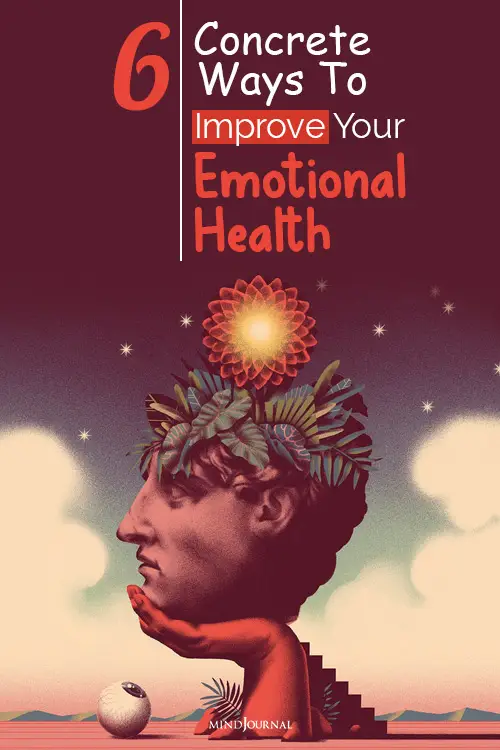
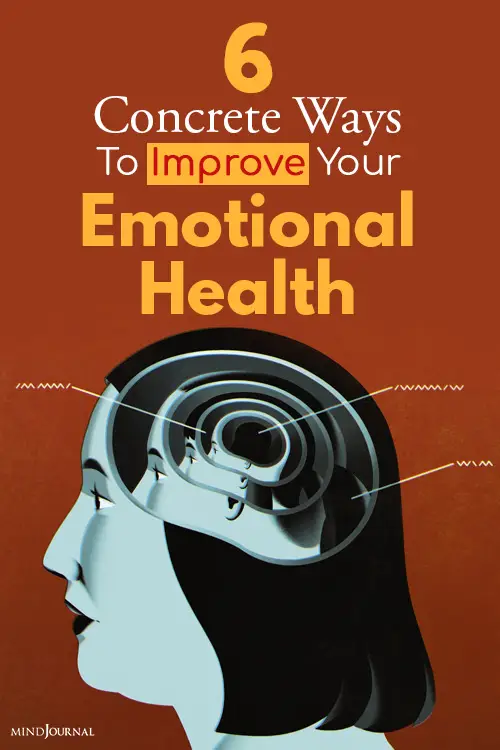
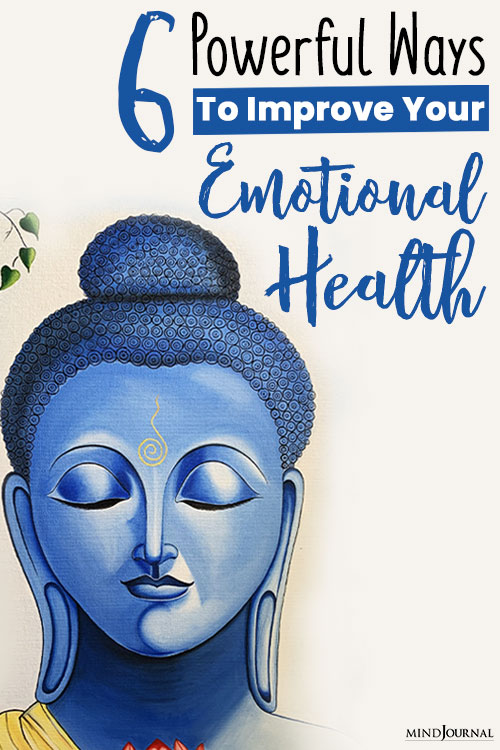
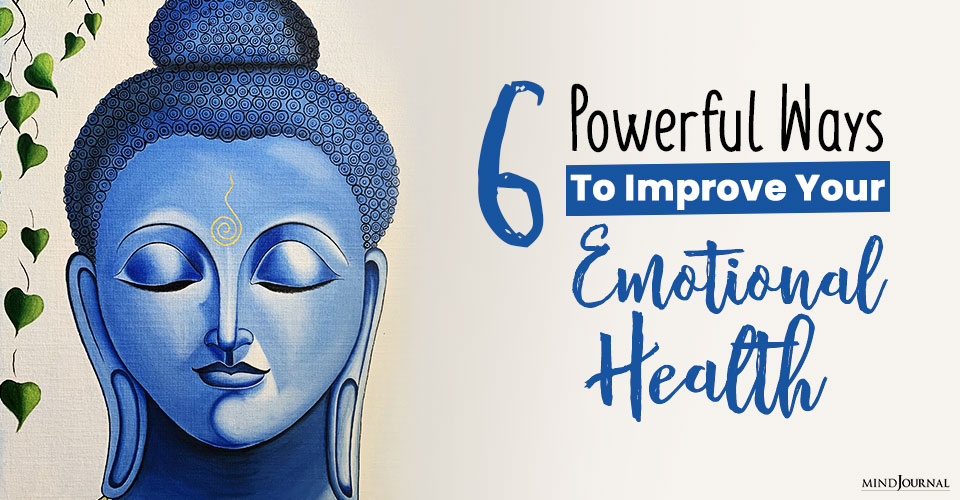







Leave a Reply
You must be logged in to post a comment.